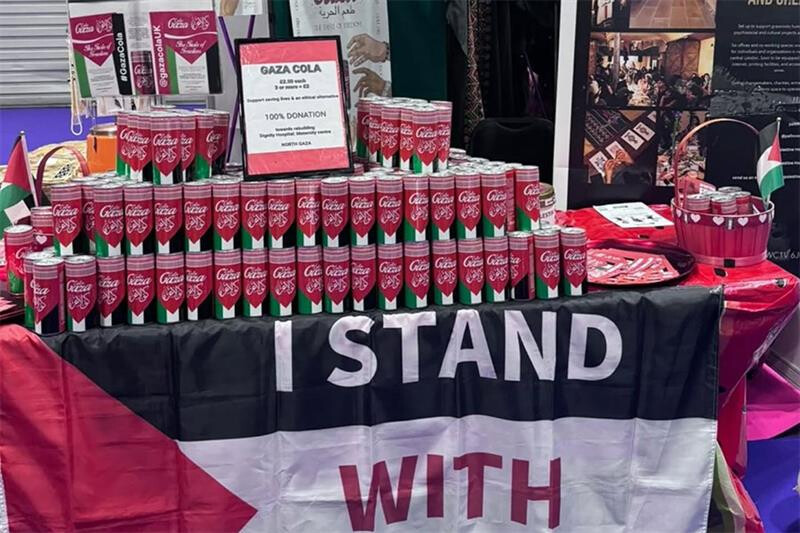
London, UK – A new soft drink, Cola Gaza, has emerged as a symbol of Palestinian solidarity and resistance, challenging global brands accused of supporting the Israeli military. Launched in early August, the beverage, the brainchild of Palestinian entrepreneur and activist Osama Kash, has already sold over 500,000 cans, with proceeds going towards rebuilding the Al-Qarara Hospital in the Gaza Strip.
Inspired by the plight of Palestinian children killed during Israeli attacks on Gaza, Kash sought to create a beverage that would honor their memory. "With every sip, I want people to remember the Palestinian struggle," he told Turkish media outlet Halk TV.
By consuming Cola Gaza, supporters are encouraged to participate in a broader movement that combines ethical consumption with activism. The drink's motto, "Genocide-Free Cola," highlights its ethical stance, contrasting with brands like Coca-Cola that Kash alleges indirectly fund Israeli military actions. Advertisements emphasize this ethical agenda, encouraging consumers to think critically about where their money goes.
Proceeds from Cola Gaza sales are directed towards rebuilding the gynecology ward of Al-Qarara Hospital, located northwest of Gaza City. Israeli attacks on Gaza have devastated the territory's healthcare system, with UNICEF reporting that 95% of pregnant or lactating women in Gaza face "severe food insecurity." "Doctors are reporting that they no longer see normal-sized babies," said UNFPA Palestine representative Dominic Cullen.
By purchasing Cola Gaza, supporters contribute directly to addressing Gaza's dire humanitarian needs. Initially introduced in Kash's three London restaurants, Cola Gaza has since expanded its distribution through Muslim-owned retailers across the UK. Manchester-based Al Aqsa recently sold out. Despite limited reach in mainstream supermarkets, online demand has surged, with six-packs selling for £12 ($15).
While Cola Gaza shares a sweet and tangy profile with Coca-Cola, Kash insists the recipe is unique. Manufactured in Poland and imported to the UK, the beverage reflects meticulous production processes, despite Kash's lack of experience in the beverage industry. He admitted to Haberler, "It was a tough and painful process," but refused to compromise on the brand's identity, which prominently features Palestinian flags and symbols.
The launch of Cola Gaza is part of a broader boycott movement targeting companies perceived as supporting Israel's military activities. Coca-Cola, which operates a facility in the Atarot industrial zone of Jerusalem (beyond the Green Line), has faced increased scrutiny and boycotts since October 2023. Kash's initiative aims to amplify these efforts by creating a viable alternative that aligns with consumers' ethical priorities.
"Cola Gaza is more than just a drink; it’s a statement," Kash said, adding that he aims to financially hit major corporations like Coca-Cola and raise global awareness of the Palestinian issue.
Despite logistical and financial challenges, Kash remains steadfast in his mission. Noting the growing number of people boycotting Israeli businesses, he emphasizes that his brand signifies a growing consumer awareness of the connection between corporate profits and geopolitical conflicts.
The popularity of Cola Gaza demonstrates how grassroots initiatives can intertwine activism, commerce, and humanitarian aid. Whether it becomes a mainstream product or remains a niche item remains uncertain, but its impact on the discourse of ethical consumption is undeniable.
[Copyright (c) Global Economic Times. All Rights Reserved.]






























